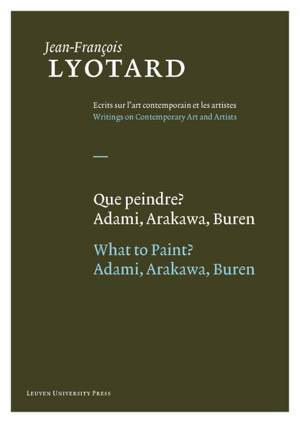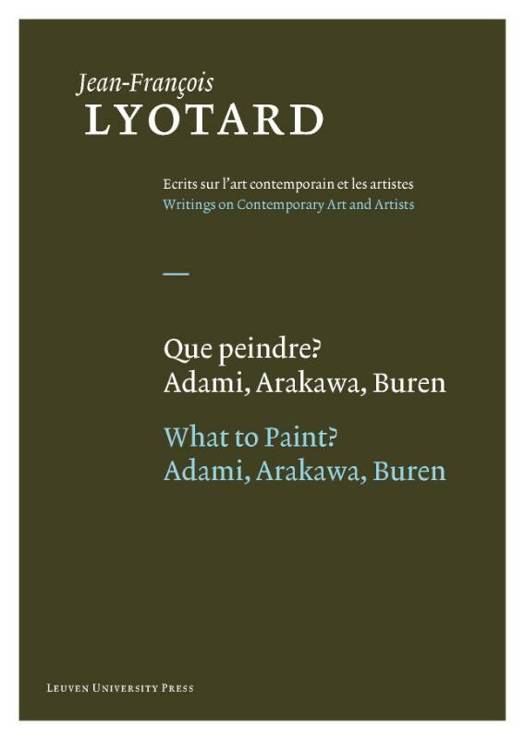
- Afhalen na 1 uur in een winkel met voorraad
- Gratis thuislevering in België vanaf € 30
- Ruim aanbod met 7 miljoen producten
- Afhalen na 1 uur in een winkel met voorraad
- Gratis thuislevering in België vanaf € 30
- Ruim aanbod met 7 miljoen producten
Ecrits sur l'art contemporain et les artistes 5: Que peindre?
Adami, Arakawa, Buren
Jean-François LyotardOmschrijving
Seven writings assembled in the context of the philosophy of art that Jean-François Lyotard developed in the 1980s, at the time of the Differend (1983) and of the "Kantian turn" leading to the Lessons on the Analytic of the Sublime (1992), are here published for the first time in English translation. The texts focus on three artists with widely divergent aesthetic orientations: the colorist-draftsman Valerio Adami, the conceptual metaphysician Shusaku Arakawa, and Daniel Buren, the "pragmatist of the invisible."
These three protagonists share the notion that the interest in art does not lie in the simple denotation of a frame of reference, but in the connotations of material nuances, in flavors, in tones--in one word, the visual, that is barely revealed in the anamnesis that guides the visible and provokes the essential inquietude of the aesthetic experience. What to Paint? Not reality or a "world," nor a rich subjectivity, nor even the phantasms of dreams or ideals of being-together, but the act of painting itself, and, beyond the performance of the painter, the presence of matters, a presence that in Arakawa's word is quite obviously blank, elusive.
Specificaties
Betrokkenen
- Auteur(s):
- Vertaler(s):
- Uitgeverij:
Inhoud
- Aantal bladzijden:
- 512
- Taal:
- Nederlands
- Reeks:
- Reeksnummer:
- nr. 5
Eigenschappen
- Productcode (EAN):
- 9789058677921
- Verschijningsdatum:
- 24/09/2012
- Uitvoering:
- Hardcover
- Formaat:
- Genaaid
- Afmetingen:
- 160 mm x 230 mm
- Gewicht:
- 1085 g

Alleen bij Standaard Boekhandel
Beoordelingen
We publiceren alleen reviews die voldoen aan de voorwaarden voor reviews. Bekijk onze voorwaarden voor reviews.











